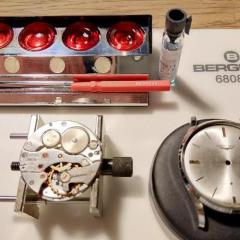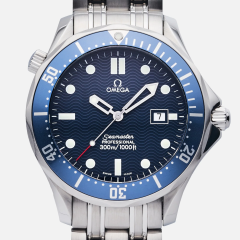-
Recently Browsing
- No registered users viewing this page.
-
Topics
-
Posts
-
When faced with say a pocket watch bridge which is cracked, silver soldering to repair is often the only option (hopefully someone wasn't there before hand with soft solder). I can generally do this succesfully and tidily with a small torch and miniscule pieces of silver solder, but on parts which were mercury amalgam gilded the heat can have have a deleterious effect on the finish. I keep wondering if there's a good way to refinish these - and despite having the needful items would rather avoid using the mercury process. In the past for electronic work I've gold plated PCBs but this involved gold potassium cyanide solution, which also doesn't realy belong at home. I've read that there are now safer alternatives but couldn't find more detail (and importantly how similar are the results to amalgam gilding, since I wouldn't want to refinish the whole watch). Pointers would be very welcome (and yes, I know solutions containing gold won't be cheap!) Alan
-
By Neverenoughwatches · Posted
The first one is an Unruh max stake for pushing out staffs -
Ok so with the great answers for my previous question may I ask what these two attachments are used for. The one with the red knob is I assume used for hand setting the seconds hand? Jon
-
According to Cousins site I need to look at document G22 as I think I need an ATGB at 304 but I cant find this size in G22 doc. The last thing I want to do is order the wrong one😳 Unless I cant see the wood for the trees 😆 I could be looking at the wrong style, I assume its classed as Round plastic Armed https://www.cousinsuk.com/product/wide-ring-gold-atgb
-
When building a new Watch I have tended to use a file to remove the remnants of dial feet that are not needed as many dials come with four feet to accomodate different movements, but this can be a bit messy so now I use this with a great deal more precision as you can use an appropriate bit for the job and keep it very localised.
-






Recommended Posts
Join the conversation
You can post now and register later. If you have an account, sign in now to post with your account.
Note: Your post will require moderator approval before it will be visible.